It’s the time of year for saving money!
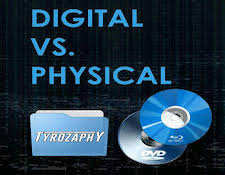 Any audiophile with more than a few years in the audio hobby will, in all probability, have some measure of a collection of physical media. Music collections, however large or small they may be, have generally been cultivated over years of buying music. Looking back, it was not that long ago quite a few high performance media outlets were occasionally highlighting, and sometimes even touting a storage method for LP’s and CD’s. Articles appeared on popular differences used to catalog one’s music collection – alphabetically, by genre, or some varying classification methodology. Streaming has effectively changed all that.
Any audiophile with more than a few years in the audio hobby will, in all probability, have some measure of a collection of physical media. Music collections, however large or small they may be, have generally been cultivated over years of buying music. Looking back, it was not that long ago quite a few high performance media outlets were occasionally highlighting, and sometimes even touting a storage method for LP’s and CD’s. Articles appeared on popular differences used to catalog one’s music collection – alphabetically, by genre, or some varying classification methodology. Streaming has effectively changed all that.
I have stated more than enough times my preference for CD’s copied to and played back through a music server. As such, I don’t see the need to rehash old news. I do, however, maintain LP’s, CD’s on a server and I also stream. Is that consistent with most audiophiles? Or is audiophilia foregoing physical media in sole favor of streaming?
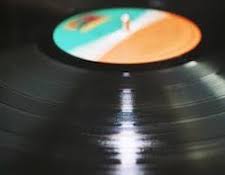 One truism regarding our hobby is that many of its followers are older. Fair enough. That also seems to suggest older audiophiles adopted the hobby long before, probably decades before streaming was even a thing. I must imagine there are physical libraries of music, whether an LP, CD or CD copied to a hard drive being enjoyed to some degree by the average audiophile.
One truism regarding our hobby is that many of its followers are older. Fair enough. That also seems to suggest older audiophiles adopted the hobby long before, probably decades before streaming was even a thing. I must imagine there are physical libraries of music, whether an LP, CD or CD copied to a hard drive being enjoyed to some degree by the average audiophile.
If you support the notion that vinyl has been enjoying a reformation of sorts, and honestly, I’m not sure how anyone could not, it is plainly obvious that right now, vinyl LP collections are on the increase – oftentimes alongside streaming. I’m guessing here, but I would imagine there are more audiophiles who enjoy both analog and digital as opposed to singularly and exclusively one or the other. I fit the “both” category for sure.
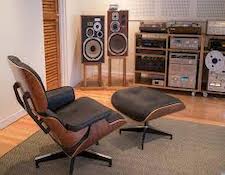 Had the advent of music servers not taken place, I would likely be unquestionably entwined with streaming – if for no other reason than convenience. While it might not be wise to admit, I’m basically a lazy music listener. I don’t really want to keep jumping up to change CD’s. And to be really honest, I’m not happily fascinated with the practice of getting up about every twenty minutes to change or flip an album – although there are those days when I do exactly that, willingly even. With the size of my collection of digital music on my server, I can just let Roon do the “walking through my music library” for me. I’m curious, is that one reason why streaming has become so popular? Lazy audiophiles? I wonder…
Had the advent of music servers not taken place, I would likely be unquestionably entwined with streaming – if for no other reason than convenience. While it might not be wise to admit, I’m basically a lazy music listener. I don’t really want to keep jumping up to change CD’s. And to be really honest, I’m not happily fascinated with the practice of getting up about every twenty minutes to change or flip an album – although there are those days when I do exactly that, willingly even. With the size of my collection of digital music on my server, I can just let Roon do the “walking through my music library” for me. I’m curious, is that one reason why streaming has become so popular? Lazy audiophiles? I wonder…
Streaming has, nevertheless, become the de facto method most often chosen to listen to digital music. And because most streaming sites have so much music available, has that fact alone relegated physical music collections to the annals of history? Because it is far easier to stream something than load a CD or clean, play and flip an album, has streaming effectively supplanted either or, both? What about the server, has it lost, or is it losing the lion’s share of its popularity to streaming?
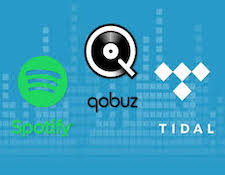 While I do not really stream music all that often, when I do, I am impressed at the availability of content. I have brought up artist’s names in a search, selected all, and discovered works I did not know even existed. Perhaps my favorite attribute for streamed music is when a friend or guest is over and requests a song or an artist I do not have. While I still maintain the susceptibility of the sonic quality level of streamed music, I cannot deny the availability and access to almost any artist one might imagine is very impressive. I can possibly see myself one day using the Internet to listen to music. Although not anytime narrowly soon.
While I do not really stream music all that often, when I do, I am impressed at the availability of content. I have brought up artist’s names in a search, selected all, and discovered works I did not know even existed. Perhaps my favorite attribute for streamed music is when a friend or guest is over and requests a song or an artist I do not have. While I still maintain the susceptibility of the sonic quality level of streamed music, I cannot deny the availability and access to almost any artist one might imagine is very impressive. I can possibly see myself one day using the Internet to listen to music. Although not anytime narrowly soon.
For most audiophiles, however, and especially the lazy ones like myself, I suppose streaming is perhaps a better mousetrap than physical media. No storage solutions. No cleaning of an LP or stylus, no demagnetizing anything (if anyone even does that), no loading a disc and pushing play, no none of those irksome tasks.
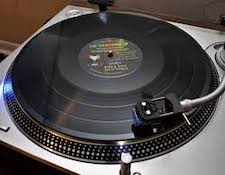 Only one problem – many people like, prefer even, going through the motions of physical media.
Only one problem – many people like, prefer even, going through the motions of physical media.
For LP’s, perhaps more than physical CD’s, audiophiles in general, and those who prefer analog specifically, will admit a certain satisfaction in moving the cue lever forward and watching the tonearm gently lower down to the record. And you know, there IS a certain satisfaction in doing exactly that. More than a debate between the sonics of digital or analog, sometimes the act of actually playing a record is as enjoyable as the music itself.
Of course, it is also worth mentioning the practice of holding an LP cover, or a CD jewel case in one’s hand and reading the information contained inside. Yes, I absolutely realize many of the playback programs available today can deliver much of that same information. I see this in some way as the difference between driving a car in a video game and driving a real car. For many, it’s just not the same.
 So where does this leave those audiophiles with a decided preference for physical media? It is certainly a conundrum – especially when articles are in abundance regaling the simplicity and freedom of streaming. How can a physical library of music, regardless of the size, compete with that?
So where does this leave those audiophiles with a decided preference for physical media? It is certainly a conundrum – especially when articles are in abundance regaling the simplicity and freedom of streaming. How can a physical library of music, regardless of the size, compete with that?
There will, quite naturally, be audiophiles with a complete and total preference for physical media. Analog proponents especially fit this category. There will also be those with the same devotion to streaming. Most of us fall somewhere in the middle. We might like streaming but also have those days when an album or CD fits the bill.
Regardless of which route anyone may actually take, one thing is for sure – however an audiophile chooses to listen to music is mostly irrelevant. The real answer to the question is only that they listen.
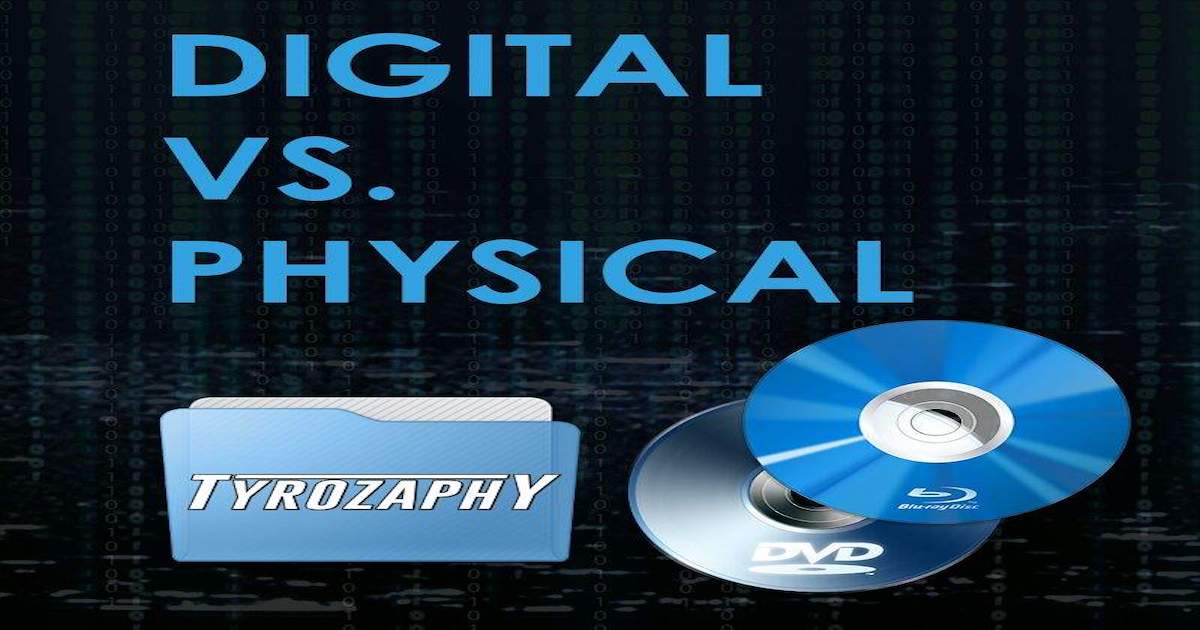
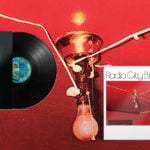





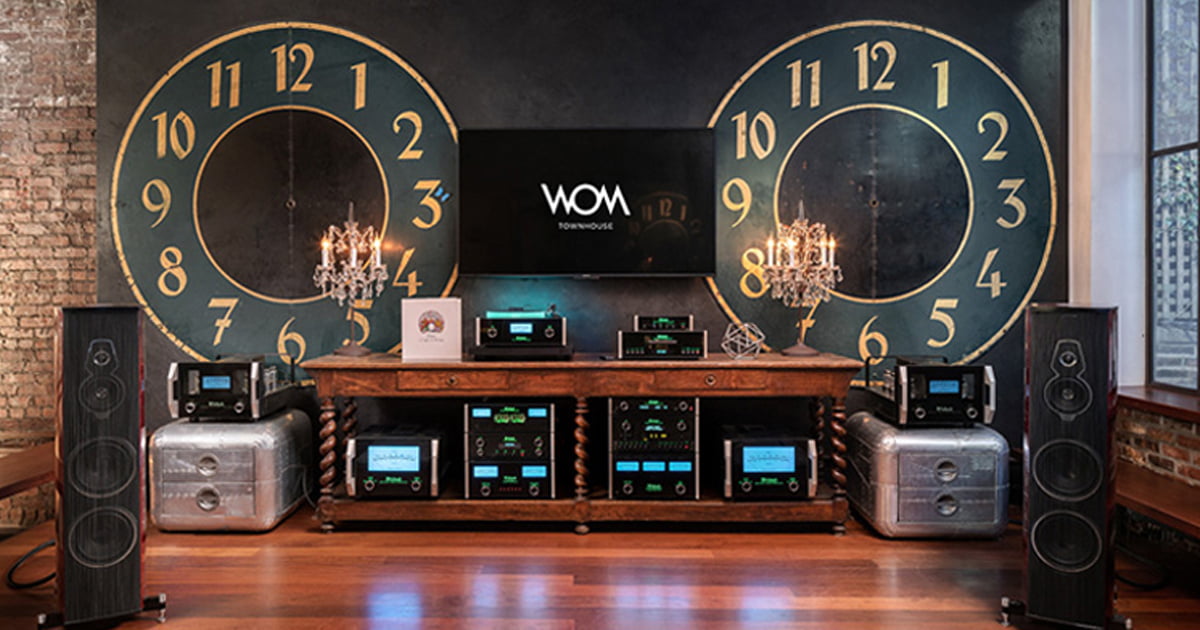
I don’t see how the answer to this question is anything other than, “Yes.” I mean, there will probably always be some small subset of users interested in obsolete formats (78s, 8-tracks, and cassettes all still have cachet among some listeners/collectors). But according to the 2018 RIAA report, 75% of music industry revenue came from streaming, 12% from physical media, and 11% from digital downloads. That’s 86% virtual vs. 12% physical (the remainder is “synch”). See the report here: http://www.riaa.com/wp-content/uploads/2019/02/RIAA-2018-Year-End-Music-Industry-Revenue-Report.pdf
I work in an academic library, and this is a vexing issue for us. Students don’t want CDs, and streaming services often change their content without notice or do not allow for institutional subscriptions. (This is also true for video streaming services, maybe even more so.). The services that do cater to libraries do not have the same robust content nor interfaces that are intuitively usable as do the services aimed at individuals. And don’t even think about the issue of metadata, especially regarding classical content.
I think the will always be a place for physical media, while the present crop of aging audiophiles are still alive, they will obviously play their existing collection and perhaps buy new stuff. So far as new stuff being available to buy, I think that will continue up until it’s no longer financially viable for the music labels to produce CD’s and vinyl. Once the older audiophiles die then I think physical media will be under serious threat as I don’t think enough of the youngsters will buy in that form.
I agree with most of the above but I do think the days of physical media are doomed…. I cannot see anyone buying physical media in 10 years (or more likely less). The only issue I have with streaming is what happens when one of the streaming services go bust… and it will happen !!!! You then have to move to another service which doesn’t have quite the same library, there are still artists on one service but not others.. For the time being I buy most of my music as digital downloads (qobuz.com, highresolutionaudio.com etc.) I am sure I will subscribe to one of the streaming services over the next few months, my criteria will be 1> availability of at least CD quality material 2> integration with roon 3> content in their library 4> likelihood of survival. I like the qobuz model of streaming and then discounting the cost of downloads but the days of downloads are numbered and may even disappear before physical media. I am sure over time one or other of these services will extend their library to cover basically all music ever recorded. People who have grown up with the availability of everything online will not stand for the inconvenience of physical media and also, generally, are not interested in the quality of the sound.
I moved to storing my music on a server a few years ago mainly because I didn’t have space for all the physical music in my listening room (all my CDs are now boxed up and stored. I also have a number of vinyl records but these have not been listened to for a very long time. I do not feel the need to interact with the physical media, for me its about listening to the music.
I still have two, CD BluRay players, but Streaming from a Roon Core with Tidal Masters and MQA versions of the old analogue classics are superior to any CD or LP with all the ease of instant playlist creation.
Someday. There are indie bands that are doing vinyl records and CD’s. Younger people into music can’t always find the more off-beat stuff streaming and will buy physical from a band’s website. Streaming is still a mainstream format and is missing a lot of older jazz releases. It’s as it always been there’s the public and there are the real music lovers, and the real music lovers will use any format to get what they want. It’s not even about sound quality, witness prerecorded cassettes are coming out of the woodwork. Ten years from now, we’ll still be having this conversation in some form.